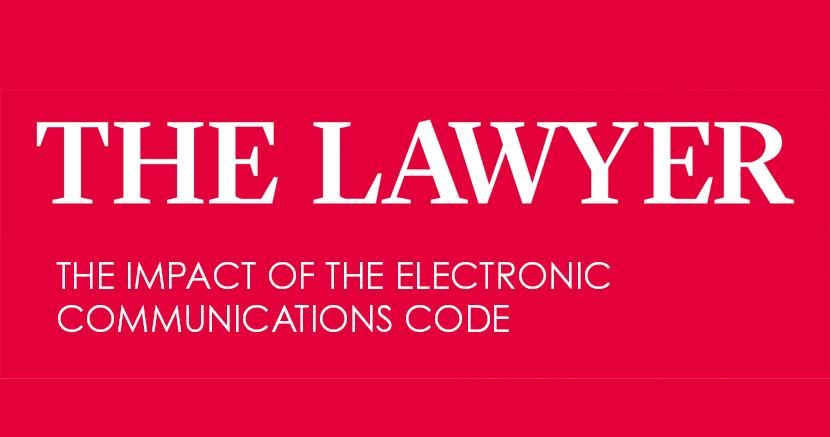Navigating the New Electronic Communications Code

The article below by Carlos Pierce, Head of Legal Projects Strategy and The Code Programme at Cornerstone featured in the Briefings section of The Lawyer, September 2019. Carlos outlines the impact of the Electronic Communications Code.
For more than 18 months the telecoms, property and legal industries have faced a challenging journey created by the introduction of an updated Electronic Communications Code.
Landowners and operators recognised that the old Code was outdated and needed to be reformed to support the roll-out and maintenance of future network services to deliver greater connectivity to the UK public.
When the improved Code came into effect in December 2017, there was ambiguity as to how the industry would react. On the one hand, telecoms and infrastructure operators welcomed it as a mechanism for helping to keep up with the growing demand for mobile services. But on the opposite spectrum, there has been considerable resistance from property owners due to the changes it has presented.
Is resistance putting the future of UK connectivity at risk?
It seems that the primary objective of the legislation seems to have been forgotten – enabling the industry to deliver greater connectivity for everyone in the UK.
Enhanced mobile coverage, and reliable connectivity, will bring significant benefits to businesses, individuals and rural communities and will continue to do so as mobile generations grow. So why the reluctance by some parties to accept the Code?
A key issue is how much operators pay landowners for sites
One of the main differences in the Code is how it has affected rental income for the landowner. And this is really the crux of the issue. Both operators and landowners now accept that rents will fall. The question really is, by how much?
Good rental guidance has already been given by the tribunal in some early cases, but it appears that property owners are still reluctant to face those rent reductions.
But why? Comparably low rents are paid by gas and electricity companies for their infrastructure. And it is important to remember that the lowered rent is based on a new valuation methodology (well-established in the utility industries) to enable operators to realise savings to re-invest in their networks. It is not to improve the profits.
The previous system of landowners basing their rental figures on what it’s worth to the operator, hence the higher rents, wasn’t conducive for growing the mobile services sector – 5G and beyond – that we all demand as customers.
And is that the point? It’s easy to forget that the demand for improved mobile services is customer-led, by us, as consumers. It’s what we want.
At Cornerstone, we have been at the forefront of implementing the Code. We have been engaging with landlords, and their agents, to reach consensual agreements using the Code for site acquisitions and maintenance of our infrastructure which is placed on rooftops, greenfield sites in rural locations and street work sites such as lamp posts.
However, in situations where the Code has posed issues, these have been taken to the Upper Tribunal (Lands Chamber).
Although it’s not the ideal route, the tribunal outcomes have given further clarity on how the Code should be used by all parties.
Adhering to the Code
To further support the Electronic Communications Code, Ofcom produced a Code of Practice in 2017, to complement the Code, to help promote best practice in how it is implemented. It encourages all parties to respectfully, and professionally, engage so that we can ultimately work together to achieve better communication services. Surely, we should take advantage of this?
I have no doubt that the Code will help us all get to the end goal it set out to achieve. Our digital economy will go from strength to strength if we all adopt the new Code rationally. But there is a risk that failure to do so could impact the future of UK connectivity.
The Government has given a helping hand to the property and telecoms industries by directing them with the use of the updated Code. However, the legal industry should also recognise the part that it plays in taking a positive leadership role in facilitating the implementation of the Code to enable a greater connected UK.
Download the full article PDF here.